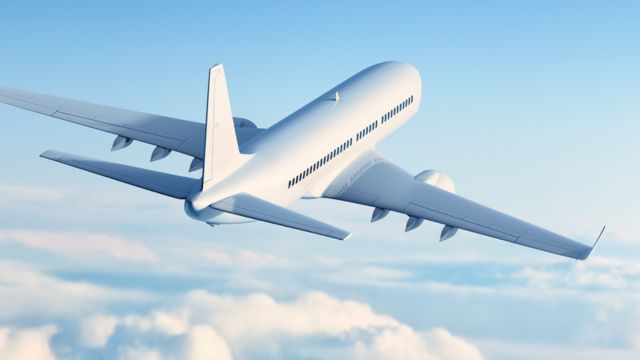(Nationwide News Service) – In three years, travelers may fly across the nation in aircraft powered by Kansas-sourced renewable jet fuel.
The secret to making this emerging fuel? Soy.
A Canadian business wants to construct the first refinery in the state that produces environmentally friendly aircraft fuel. Additionally, it plans to pipe the emissions from the factory in southeast Kansas to a carbon sequestration facility so that they can be stored underground.
Azure Sustainable Fuels Corp. wants to locate its jet fuel plant close to a large, recently constructed soybean-crushing facility at Cherryvale, which might provide a reliable supply of the materials it requires. This facility is expected to start operations this year.
By 2027, the jet fuel factory would start servicing the aviation sector.
However, the facility and the infrastructure that goes with it are not yet finalized. The estimated investment in rural Montgomery County will exceed $900 million.
According to a company representative, Azure is soliciting money from investors, finishing the engineering work, and applying for regulatory clearances. In around a year, the corporation hopes to make its final investment choice. Additionally, it is looking into possible locations in British Columbia, Ontario, and Manitoba.
Montgomery County granted Azure tax advantages last month.
The story was initially reported by The Montgomery County Chronicle, which stated that county commissioners had approved a package exempting Azure from sales tax on labor and building materials and from local property taxes for ten years.
About 1,500 temporary jobs and about 150 full-time, long-term jobs will be brought to the area during the construction phase of the project, according to Azure.
According to a news release from Azure CEO Douglas Cole, “We believe that our project would help to enhance Kansas’ rich aviation history.”
Every year, Kansas exports aircraft items worth over $2 billion. According to the Kansas Department of Commerce, this accounts for almost one-fifth of the state’s yearly exports. Spirit Aerosystems, a significant manufacturer, is situated in Wichita. The city is home to Textron Aviation, which manufactures Beech and Cessna aircraft.
Among the top 10 states in the union for soybean production is Kansas. Missouri, a neighbor, is also.
An expanding market for gasoline
A certified drop-in fuel would be produced at Azure’s facilities.
A subclass of biofuels known as “drop-in fuels” may blend safely with fossil fuels, even at higher percentages. Lower ratios of biofuel from earlier generations are required.
Virgin Atlantic garnered media attention in November when it operated a sizable commercial jet from London to New York on only sustainable aviation fuel—no fossil fuels at all.
Businesses are swarming into the drop-in fuel sector, according to BloombergNEF industry experts. By 2030, they project a threefold increase in the world’s drop-in fuel supply, which includes renewable diesel.
Compared to aviation fuel, diesel drop-in fuel is far more widespread and is already produced in Kansas. The Department of Energy claims that both types lower pollution.
According to the U.S. Department of Energy, as of April of last year, there was only one plant in the nation manufacturing sustainable aviation fuel; however, additional sites were being built, and this particular fuel was also being imported.
According to the EPA, the amount of renewable fuel used in the United States increased from 5 million gallons in 2021 to around 16 million gallons in 2022. It was reported that numerous airlines had signed agreements requiring hundreds of millions of gallons with both present and prospective producers of it.
By initiating the Sustainable Aviation Fuel Grand Challenge, the federal government has put its weight—along with hundreds of millions of dollars—into the cause of drastically reducing aviation emissions.
By 2030, 3 billion gallons of this fuel will be used by American aircraft, and by 2050, ten times as much.
In short, the goal is for the U.S. aviation sector as a whole to run entirely on this fuel by 2050.
Without building new aircraft or altering their engines, drop-in aviation fuel can be used to refuel current aircraft.
The essential ingredient for Azure’s product would be soybeans. According to the manufacturer, additional sources like tallow, leftover cooking oil, or small amounts of canola could be added as a supplement.
According to BloombergNEF, producers of drop-in fuels may reduce their carbon footprints if they could obtain large quantities of spent cooking oil and other waste oils for their goods. Analysts currently state that is not a viable alternative.
There are benefits to having the Kansas factory next to the newly constructed soybean crushing facility in Montgomery County.
According to an Azure spokeswoman, “it probably makes sense to utilize their output and reduce transportation costs.” “However, we will also make use of feedstocks from other sources, which will be transported by truck or rail into our facility.”




